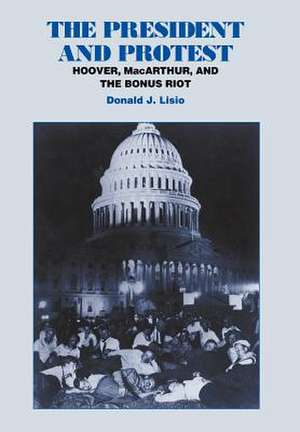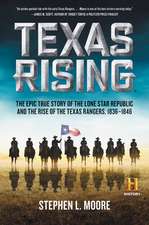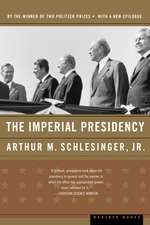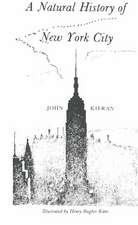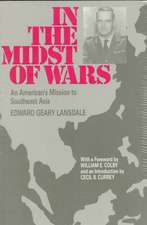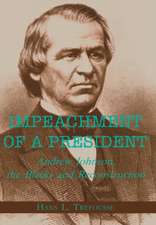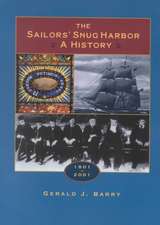The President and Protest – Hoover, MacArthur, and the Bonus March
Autor Donald J. Lisioen Limba Engleză Hardback – 31 dec 1993
| Toate formatele și edițiile | Preț | Express |
|---|---|---|
| Paperback (1) | 266.13 lei 6-8 săpt. | |
| Wiley – 31 dec 1993 | 266.13 lei 6-8 săpt. | |
| Hardback (1) | 565.79 lei 6-8 săpt. | |
| Wiley – 31 dec 1993 | 565.79 lei 6-8 săpt. |
Preț: 565.79 lei
Preț vechi: 698.51 lei
-19% Nou
Puncte Express: 849
Preț estimativ în valută:
108.26€ • 113.34$ • 89.58£
108.26€ • 113.34$ • 89.58£
Carte tipărită la comandă
Livrare economică 05-19 aprilie
Preluare comenzi: 021 569.72.76
Specificații
ISBN-13: 9780823215713
ISBN-10: 0823215717
Pagini: 346
Dimensiuni: 152 x 229 x 15 mm
Greutate: 0.64 kg
Ediția:Revised
Editura: Wiley
ISBN-10: 0823215717
Pagini: 346
Dimensiuni: 152 x 229 x 15 mm
Greutate: 0.64 kg
Ediția:Revised
Editura: Wiley
Descriere
Lisio re-examines the events surrounding the 1932 Bonus March on Hoover's White House by outraged veterans. Included is a look at the protective motives of Hoover himself, and how the president came to be vilified for the actions of MacArthur.
Recenzii
a . . . [the] usual picture of Hoover as a villain who provoked the riot is replaced here by one in which Hooveras humanitarian intentions were countered because General MacArthur exceeded his orders. Lisio has used newly opened manuscripts and evaluated old ones more carefully than previous authors. His chapters on how the historical conspiracy arose are superior.a
Notă biografică
Donald J. Lisio is a Henrietta Arnold Professor of History at Coe College, Cedar Rapids, Iowa.
Textul de pe ultima copertă
This book explores the background of the NRA, the most important economic measure of the first hundred days of Franklin D. Roosevelt's New Deal.
